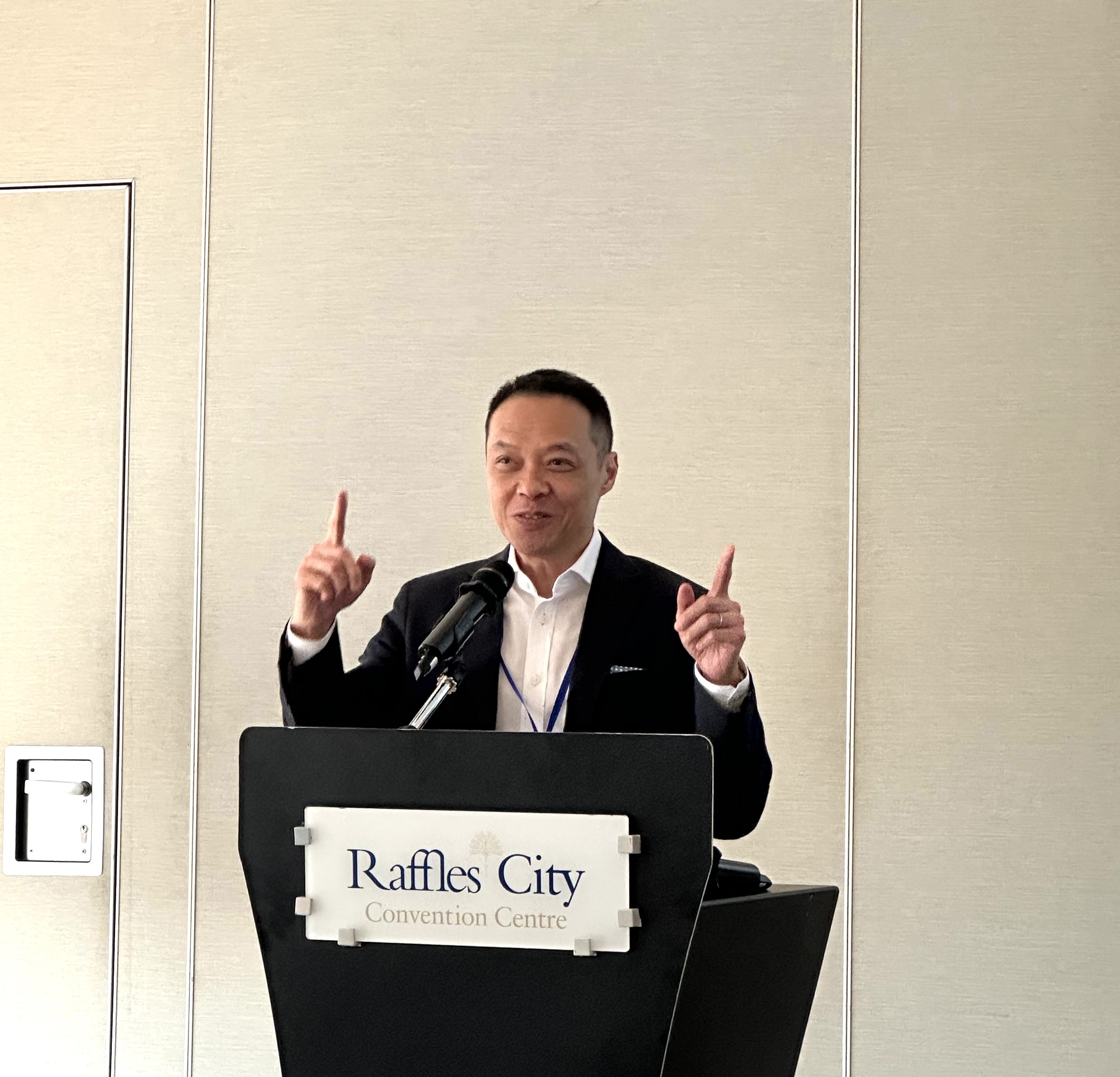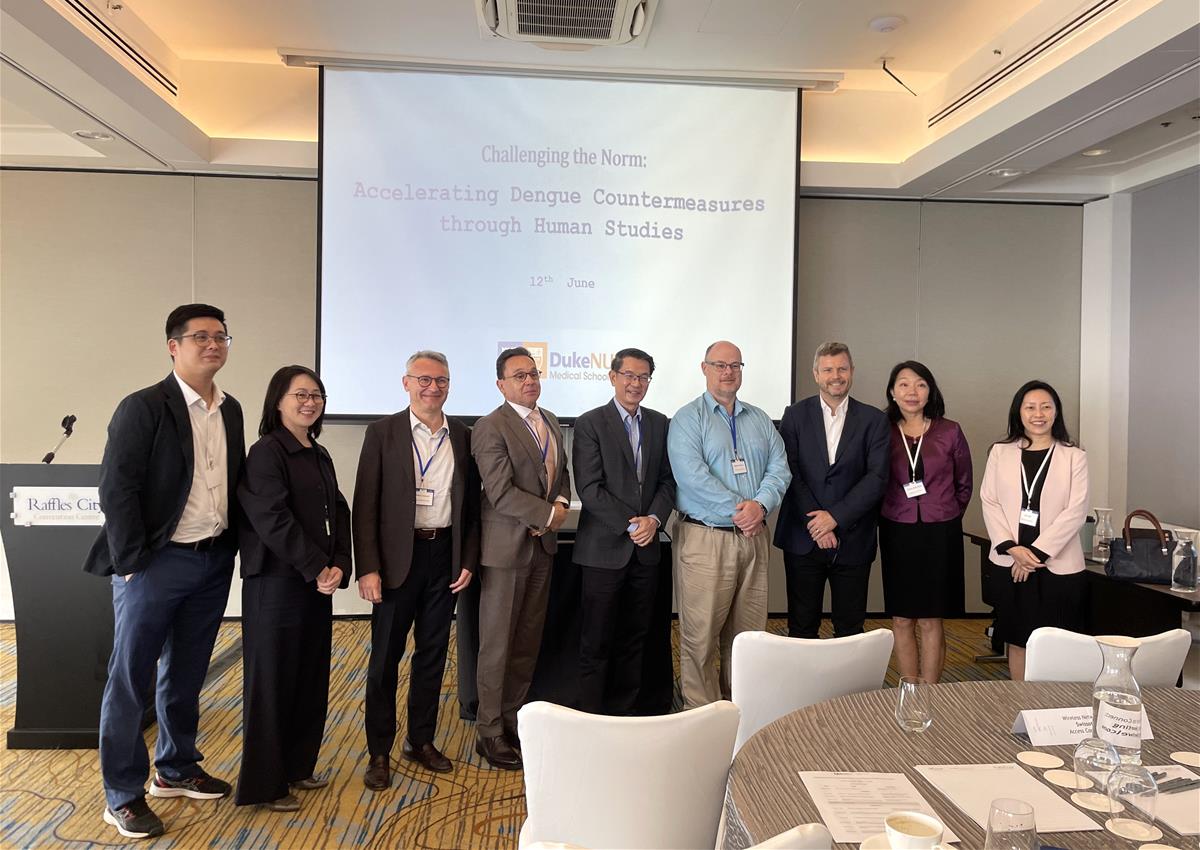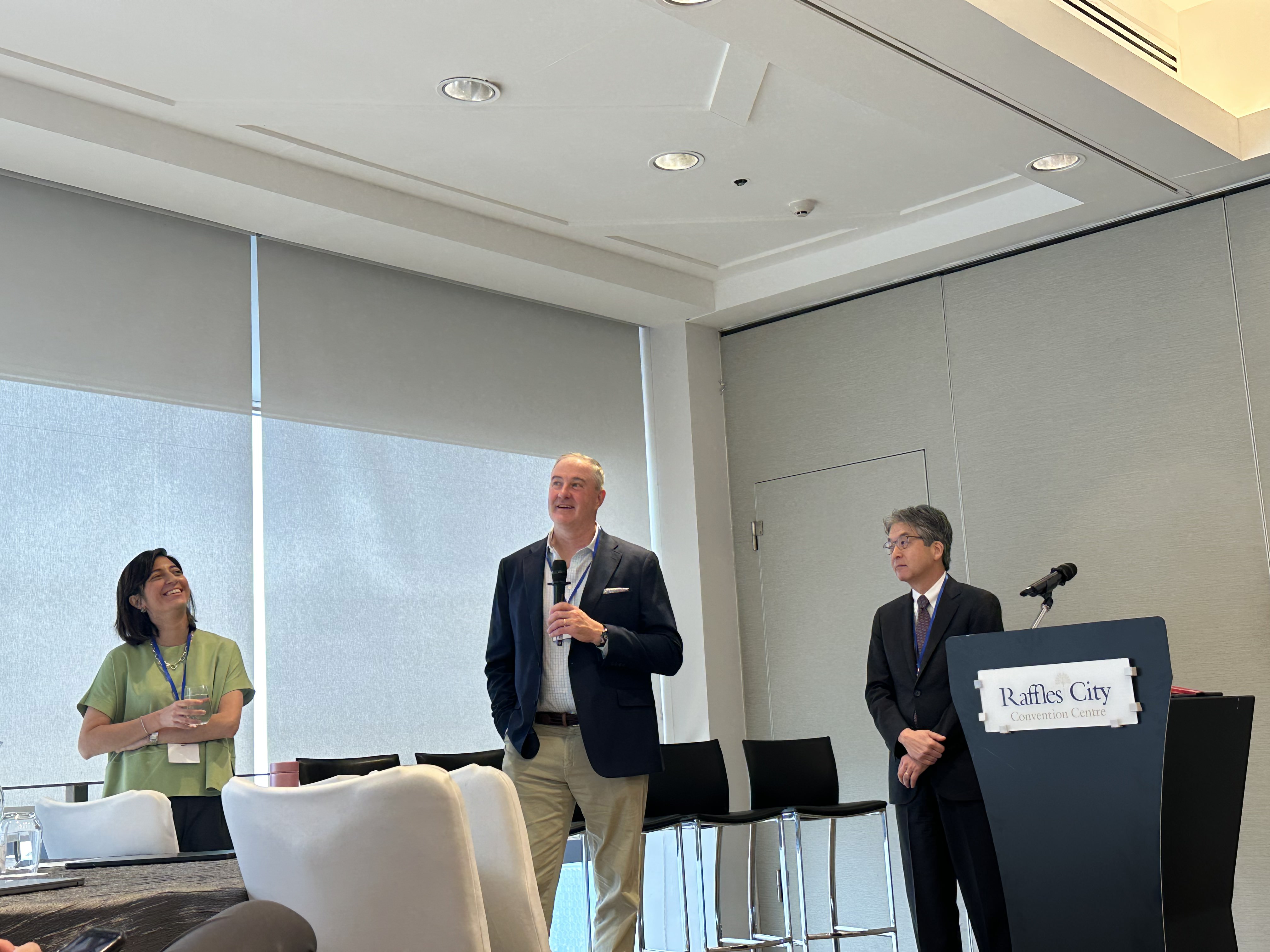Dengue continues to be one of the most pressing public health challenges of our time—named by the World Health Organization as one of the top ten global health threats in the 21st century. Yet despite decades of research, significant gaps remain to our understanding of dengue pathogenesis and immunity.

Professor Ooi Eng Eong, Deputy Director of Duke-NUS' Emerging Infectious Diseases and Associate Dean (Early Research Career Development), Office of Academic Medicine, facilitating the programmes throughout the day // Credit: Duke-NUS Medical School
In a bid to confront these gaps and catalyse fresh collaboration, nearly 100 researchers, regulators, health communicators and scientists gathered at Challenging the Norm: Accelerating Dengue Countermeasures through Human Studies—a symposium held on 12 June 2025.
Left to right: Professor Ooi Eng Eong and presenters Assistant Professor Adam Waickman, Dr Mohammad Shafiul Alam and Associate Professor Panisadee Avirutnan at a question-and-answer session during the symposium. // Credit: Duke-NUS Medical School
The symposium was jointly organised by the Emerging Infectious Diseases (EID) Signature Research Programme at Duke-NUS, the Duke-NUS Centre of Regulatory Excellence (CoRE), and the Global Dengue & Aedes-Transmitted Diseases Consortium (GDAC) alliance.

Members of the CoRE team pose with presenters from the concluding panel discussion, ‘Regulatory frameworks for filling vaccine data gaps’, moderated by CoRE executive director Professor John Lim. // Credit: Duke-NUS Medical School
Co-organised by EID's Professor Ooi Eng Eong, Deputy Director, Assistant Professor Shirin Kalimuddin and Dr Tanu Chawla, the day-long programme spotlighted pioneering research in controlled and dengue human infection models (CHIM and DHIM)—specifically, using dengue human infection models as a way to address one of dengue research’s most critical roadblocks: the absence of a reliable animal model that accurately recreates the clinical features of dengue in humans.
-dr-andrew-pengilley-(therapeutic-goods-administration)-dr-claus-bolte-(university-hospital-basel)-dr-marco-cavaleri-(european-medicines-agency).jpg?sfvrsn=e54e18b2_1) Left to right: Moderator Professor John Lim (CoRE) with Dr Claus Bolte (University Hospital Basel), Dr Marco Cavaleri (European Medicines Agency) and Dr Andrew Pengilley (Therapeutic Goods Administration) on regulatory frameworks for filling vaccine data gaps / /Credit: EID, Duke-NUS Medical School
Left to right: Moderator Professor John Lim (CoRE) with Dr Claus Bolte (University Hospital Basel), Dr Marco Cavaleri (European Medicines Agency) and Dr Andrew Pengilley (Therapeutic Goods Administration) on regulatory frameworks for filling vaccine data gaps / /Credit: EID, Duke-NUS Medical School
Throughout the day, presenters and attendees examined how DHIM studies can yield valuable insights into dengue immunity and vaccine development. These conversation extended into broader themes, including the ethical design of such studies in Singapore, and how to responsibility communicate their findings to the public.
.jpg?sfvrsn=d5ac4d66_2)
Professor Antonio Bertoletti from EID asks a question regarding research ideas on respiratory syncytial viruses. // Credit: Duke-NUS Medical School
Held under Chatham House Rule, the symposium fostered open, thoughtful discussion, particularly important given the prevailing ethical considerations and sensitivities surrounding human challenges studies. Discussions also highlighted the importance of regulatory frameworks and health communication strategies, underscoring how precision in messaging and transparency with the public are essential as this field evolves.
.jpg?sfvrsn=ee2aa84d_2)
Members of the audience listen to the lively and thought-provoking discussions surrounding human challenges, involving safety, compliance, efficacy and ethics in virology research. // Credit: Duke-NUS Medical School
The event concluded with a networking session that sparked promising new connections among attendees, laying the groundwork for future collaborations aimed at advancing dengue science and solutions.

Event co-organiser and Assistant Professor Shirin Kalimuddin moderates a question-and-answer session with Professor Stephen Thomas and Professor Albert Ko // Credit: EID, Duke-NUS Medical School

Chit-chat at the Kopitiam: Prof Ooi moderates a discussion on health communication with (left to right) Ms Sheila Pakir (Kaye Consulting), Ms Nicole Lim (formerly Duke-NUS), and Associate Professor Jo-Anne Mansk Nankervis (LKC School of Medicine) // Credit: EID, Duke-NUS Medical School